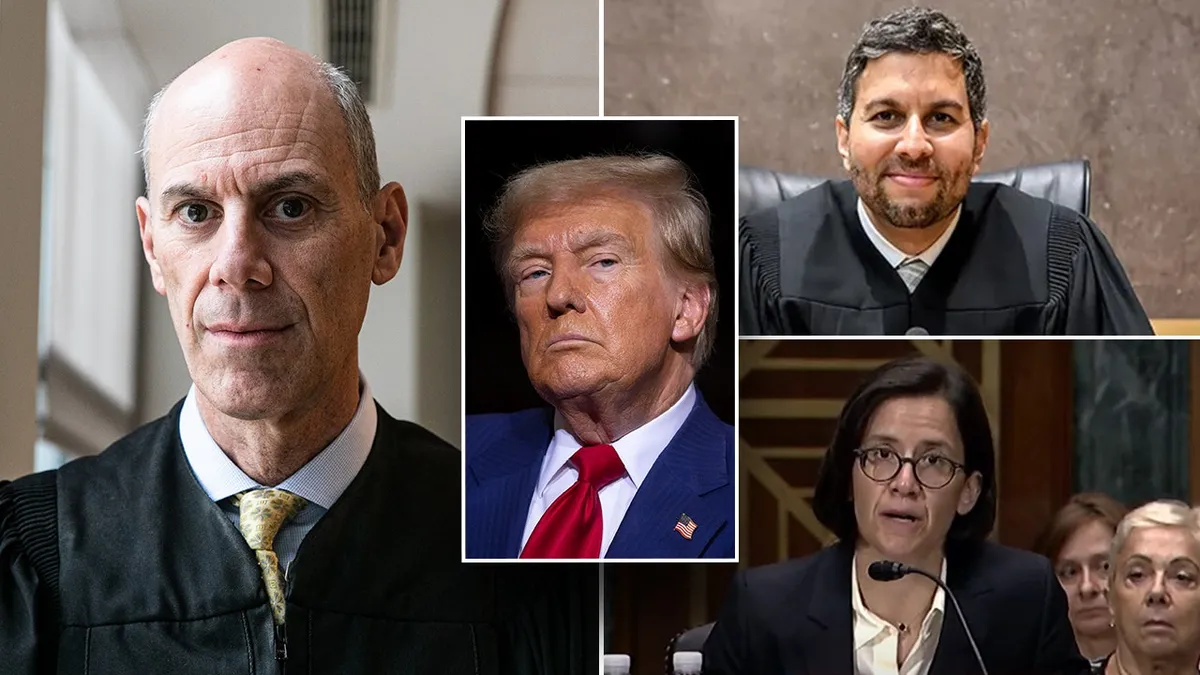
In an effort to combat what they perceive as activist judges obstructing President Donald Trump’s agenda, Congressional Republicans are considering a range of strategies. Many of these options are anticipated to be discussed during an upcoming hearing by the House Judiciary Committee, scheduled for April 1. Speaker Mike Johnson, R-La., met privately with members of the House Judiciary Committee to unify lawmakers around a significant piece of legislation that aims to restrict federal district court judges from issuing nationwide injunctions.
During discussions, Speaker Johnson emphasized that Republicans could explore various avenues to address the issue of activist judges. House Freedom Caucus member Rep. Ralph Norman, R-S.C., expressed optimism about the proposed legislation, describing it as a strong starting point. This legislation, known as the No Rogue Rulings Act, enjoys backing from both the White House and House GOP leadership. A vote on this bill is anticipated to take place next week.
Led by Rep. Darrell Issa, R-Calif., the No Rogue Rulings Act aims to compel most district court judges to limit their orders to the most pertinent scope, thereby preventing them from halting Trump’s policies on a national scale. While no Republican lawmaker has voiced public skepticism regarding the bill, conservatives are urging Congress to take more decisive action against activist judges.
In addition to legislative measures, both Speaker Johnson and prominent members of the House Judiciary Committee have suggested that Congress could leverage its financial authority to curtail the influence of activist courts. “We do have authority over the federal courts,” Johnson stated at his weekly press briefing. “We have power over funding, over the courts, and all these other matters. Desperate times call for desperate measures, and Congress is going to act.”
Congress possesses the ability to control government spending through various mechanisms, including setting annual appropriations levels and rescinding funding via a rescission package. Rep. Chip Roy, R-Texas, who chairs the House Judiciary Committee's subcommittee on the Constitution, highlighted the importance of exploring funding scenarios, although he noted that these processes require time and careful consideration.
Some Republicans have proposed resolutions to impeach federal judges who have impeded Trump’s agenda. However, there appears to be limited enthusiasm within the House GOP for pursuing this approach. During a closed-door meeting, Johnson indicated his opposition to impeachment, reminding members that only 15 federal judges have been impeached in U.S. history. He stressed that impeachment should be reserved for judges accused of high crimes and misdemeanors, rather than disagreements over judicial decisions.
Despite this, there remains a possibility that conservatives could pressure House GOP leaders to take action by classifying their impeachment resolutions as privileged. This classification would mandate a procedural vote within two legislative days. However, Reps. Brandon Gill, R-Texas, and Derrick Van Orden, R-Wis., who filed such resolutions, indicated they currently do not plan to pursue this strategy. Nevertheless, the option remains open, with leaders like House Judiciary Chairman Jim Jordan, R-Ohio, asserting that “nothing is off the table.”
As Congressional Republicans navigate the complexities of addressing the challenges posed by activist judges, they are considering a multifaceted approach that includes legislative initiatives, funding strategies, and potential impeachment resolutions. The outcome of these discussions and the upcoming House Judiciary hearing will be crucial in determining how effectively Congress can respond to judicial actions perceived as obstructive to the Trump administration's agenda.